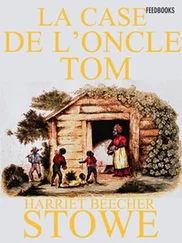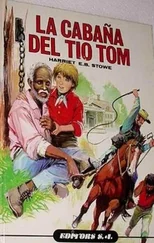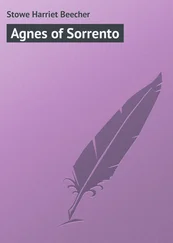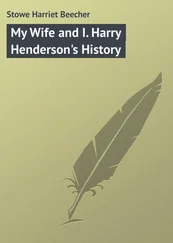Harriet Stowe - Poganuc People
Здесь есть возможность читать онлайн «Harriet Stowe - Poganuc People» — ознакомительный отрывок электронной книги совершенно бесплатно, а после прочтения отрывка купить полную версию. В некоторых случаях можно слушать аудио, скачать через торрент в формате fb2 и присутствует краткое содержание. ISBN: , Жанр: foreign_language, foreign_prose, на английском языке. Описание произведения, (предисловие) а так же отзывы посетителей доступны на портале библиотеки ЛибКат.
- Название:Poganuc People
- Автор:
- Жанр:
- Год:неизвестен
- ISBN:http://www.gutenberg.org/ebooks/48190
- Рейтинг книги:5 / 5. Голосов: 1
-
Избранное:Добавить в избранное
- Отзывы:
-
Ваша оценка:
- 100
- 1
- 2
- 3
- 4
- 5
Poganuc People: краткое содержание, описание и аннотация
Предлагаем к чтению аннотацию, описание, краткое содержание или предисловие (зависит от того, что написал сам автор книги «Poganuc People»). Если вы не нашли необходимую информацию о книге — напишите в комментариях, мы постараемся отыскать её.
Poganuc People — читать онлайн ознакомительный отрывок
Ниже представлен текст книги, разбитый по страницам. Система сохранения места последней прочитанной страницы, позволяет с удобством читать онлайн бесплатно книгу «Poganuc People», без необходимости каждый раз заново искать на чём Вы остановились. Поставьте закладку, и сможете в любой момент перейти на страницу, на которой закончили чтение.
Интервал:
Закладка:
Not that children were any less beloved, or motherhood a less holy thing. There were many women of deep hearts, who, like the "most blessed among women," kept all the sayings of their darlings and pondered them in their hearts; but it was not deemed edifying or useful to pay much apparent attention to these utterances and actions of the youthful pilgrim.
Children's inquiries were freely put off with the general answer that Mamma was busy and they must not talk – that when they were grown up they would know all about these things, etc.; and so they lived apart from older people in their own little child-world of uninvaded ideas.
Dolly, therefore, had her wise thoughts about Christmas. She had been terribly frightened at first, when she was brought home from the church; but when her papa kissed her and promised her a sugar dog she was quite sure that, whatever the unexplained mystery might be, he did not think the lovely scene of the night before a wicked one. And when Mrs. Cushing came and covered the little girl up warmly in bed, she only said to her, "Dolly, you must never get out of bed again at night after you are put there; you might have caught a dreadful cold and been sick and died, and then we should have lost our little Dolly." So Dolly promised quite readily to be good and lie still ever after, no matter what attractions might be on foot in the community.
Much was gained, however, and it was all clear gain; and forthwith the little fanciful head proceeded to make the most of it, thinking over every feature of the wonder. The child had a vibrating, musical organization, and the sway and rush of the chanting still sounded in her ears and reminded her of that wonderful story in the "Pilgrim's Progress," where the gate of the celestial city swung open, and there were voices that sung, "Blessing and honor and glory and power be unto Him who sitteth on the throne." And then that wonderful star, that shone just as if it were a real star – how could it be! For Miss Ida Lewis, being a young lady of native artistic genius, had cut a little hole in the center of her gilt paper star, behind which was placed a candle, so that it gave real light, in a way most astonishing to untaught eyes. In Dolly's simple view it verged on the supernatural – perhaps it was the very real star read about in the gospel story. Why not? Dolly was at the happy age when anything bright and heavenly seemed credible, and had the child-faith to which all things were possible. She had even seriously pondered at times the feasibility of walking some day to the end of the rainbow to look for the pot of gold which Nabby had credibly assured her was to be found there; and if at any time in her ramblings through the wood a wolf had met her and opened a conversation, as in the case of little Red Riding Hood, she would have been no way surprised, but kept up her part of the interview with becoming spirit.
"I wish, my dear," said Mrs. Cushing, after they were retired to their room for the night, "that to-morrow morning you would read the account of the birth of Christ in St Matthew, and give the children some good advice upon the proper way of keeping Christmas."
"Well, but you know we don't keep Christmas; nobody knows anything about Christmas," said the Doctor.
"You know what I mean, my dear," replied his wife. "You know that my mother and her family do keep Christmas. I always heard of it when I was a child; and even now, though I have been out of the way of it so long, I cannot help a sort of kindly feeling towards these ways. I am not surprised at all that the children got drawn over last night to the service. I think it's the most natural thing in the world, and I know by experience just how attractive such things are. I shouldn't wonder if this Episcopal church should draw very seriously on your congregation; but I don't want it to begin by taking away our own children. Dolly is an inquisitive child; a child that thinks a good deal, and she'll be asking all sorts of questions about the why and wherefore of what she saw last night."
"Oh, yes, Dolly is a bright one. Dolly's an uncommon child," said the Doctor, who had a pardonable pride in his children – they being, in fact, the only worldly treasure that he was at all rich in.
"And as to that little dress-up affair over there," he continued, "I don't think any real harm has been done as yet. I have my eyes open. I know all about it, and I shall straighten out this whole matter next Sunday," he said, with the comfortable certainty of a man in the habit of carrying his points.
"I don't feel so very sure of that," said his wife; "at the same time I shouldn't want anything like an open attack on the Episcopalians. There are sincere good people of that way of thinking – my mother, for instance, is a saint on earth, and so is good old Madam Lewis. So pray be careful what you say."
"My dear, I haven't the least objection to their dressing their church and having a good Christian service any day in the year if they want to, but our people may just as well understand our own ground. I know that the Democrats are behind this new move, and they are just using this church to carry their own party purposes – to break up the standing order and put down all the laws that are left to protect religion and morals. They want to upset everything that our fathers came to New England to establish. But I'm going to head this thing off in Poganuc. I shall write a sermon to-morrow, and settle matters."
Now, there is no religious organization in the world in its genius and history less likely to assimilate with a democratic movement than the Episcopal Church. It is essentially aristocratic in form, and, in New England, as we have already noticed, had always been on the side of monarchical institutions.
But, just at this point in the history of New England affairs, all the minor denominations were ready to join any party that promised to break the supremacy of the State Church and give them a foothold.
It was the "Democratic party" of that day that broke up the exclusive laws in favor of the Congregational Church and consequently gained large accessions to their own standard. To use a brief phrase, all the outs were Democrats, and all the ins Federalists. But the Democratic party had, as always, its radical train. Not satisfied with wresting the scepter from the hands of the Congregational clergyman, and giving equal rights and a fair field to other denominations, the cry was now to abolish all laws in any way protective of religious institutions, or restrictive of the fullest personal individualism; in short, the cry was for the liberty of every man to go to church or not, to keep the Sabbath or not, to support a minister or not, as seemed good and proper in his own eyes.
This was in fact the final outcome of things in New England, and experience has demonstrated that this wide and perfect freedom is the best way of preserving religion and morals. But it was not given to a clergyman in the day of Dr. Cushing, who had hitherto felt that a state ought to be like a well-governed school, under the minister for schoolmaster, to look on the movements of the Democratic party otherwise than as tending to destruction and anarchy. This new movement in the Episcopal Church he regarded as but a device by appeals to the senses – by scenic effects, illuminations and music – to draw people off to an unspiritual and superficial form of religion, which, having once been the tool of monarchy and aristocracy, had now fallen into the hands of the far more dangerous democracy; and he determined to set the trumpet to his mouth on the following Sabbath, and warn the watchmen on the walls of Zion.
He rose up early, however, and proceeded to buy a sugar dog at the store of Lucius Jenks, and when Dolly came down to breakfast he called her to him and presented it, saying as he kissed her,
Читать дальшеИнтервал:
Закладка:
Похожие книги на «Poganuc People»
Представляем Вашему вниманию похожие книги на «Poganuc People» списком для выбора. Мы отобрали схожую по названию и смыслу литературу в надежде предоставить читателям больше вариантов отыскать новые, интересные, ещё непрочитанные произведения.
Обсуждение, отзывы о книге «Poganuc People» и просто собственные мнения читателей. Оставьте ваши комментарии, напишите, что Вы думаете о произведении, его смысле или главных героях. Укажите что конкретно понравилось, а что нет, и почему Вы так считаете.












